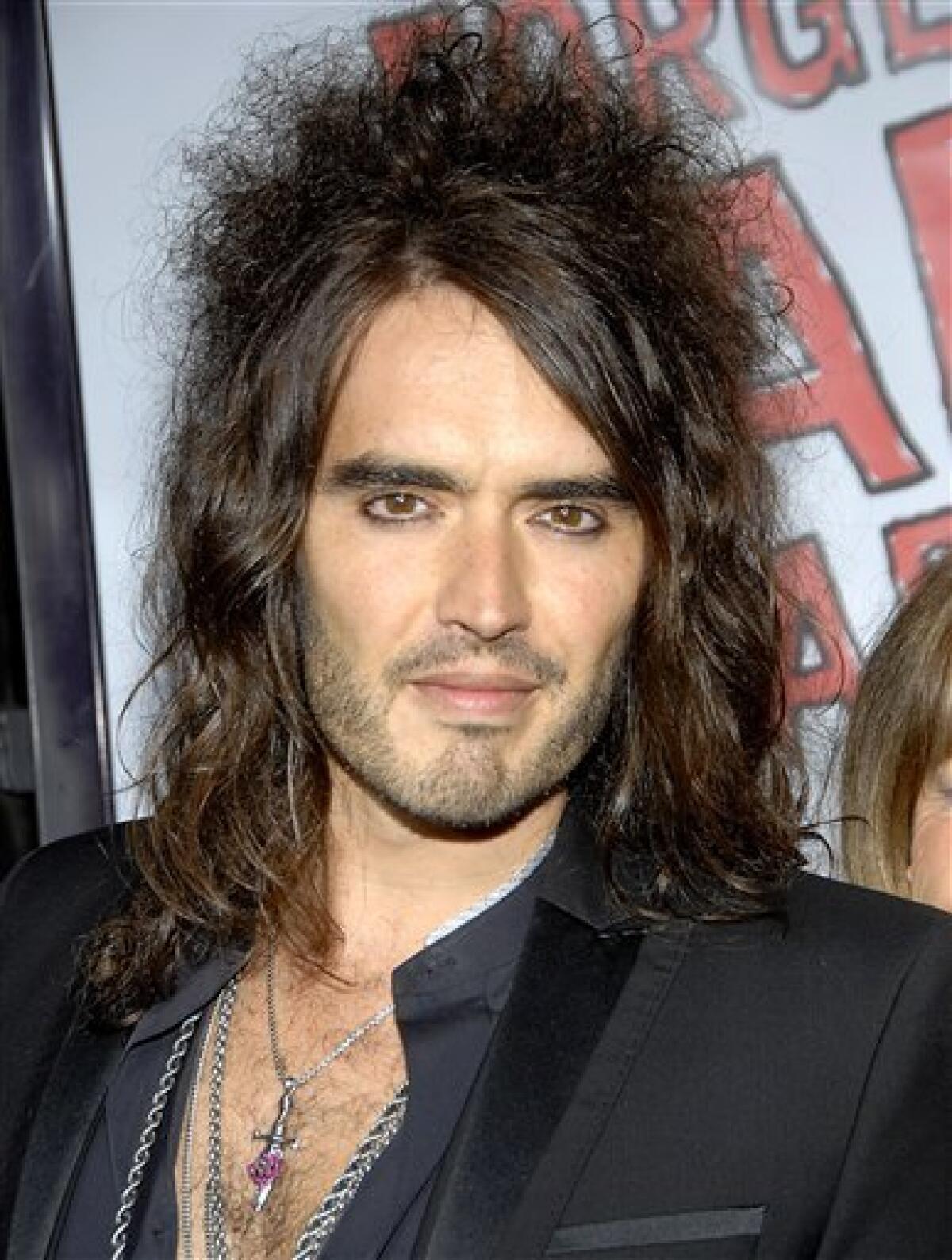BBC suspends comic Russell Brand over prank calls

Every entertainer knows there’s a fine line between offbeat and offensive. Russell Brand has built a career walking it _ but now he may have stumbled.
The wild-haired, motor-mouthed British comedian is renowned for risque routines, wrote a memoir recounting his drug and sex addiction and called President Bush “that retarded cowboy fellow” while hosting MTV’s Video Music Awards.
On Wednesday, the BBC indefinitely suspended Brand and fellow performer Jonathan Ross because they left lewd messages on the voicemail of a 78-year-old actor. Also under threat is the reputation of Britain’s state-funded national broadcaster, which allowed Brand’s routine to make it to air.
The calls by Brand and Ross to actor Andrew Sachs _ best known for playing Spanish waiter Manuel in the 1970s Britcom “Fawlty Towers” _ have drawn more than 18,000 complaints. Prime Minister Gordon Brown called the comments “inappropriate and unacceptable.”
In the ad-libbed messages, the pair claimed Brand had slept with Sachs’ granddaughter Georgina Baillie, and joked that Sachs might hang himself as a result of the news. Baillie, a 23-year-old burlesque performer, acknowledged she had a sexual relationship with Brand but said the calls to her grandfather were “cruel.”
The duo made further calls to Sachs in which they tried to apologize but continued to blurt out lewd messages. The calls were recorded Oct. 16 and aired on Brand’s radio show two days later.
Both Brand and Ross apologized.
“I am sorry that I upset Mr. Sachs,” Brand, 33, told reporters outside his London home Wednesday in an uncharacteristically terse statement. “It would be silly of me to speak without thinking, because that’s caused all this trouble in the first place.”
BBC director general Mark Thompson made a “personal and unreserved apology” for the “gross lapse of taste by the performers and the production team.”
“I have decided that it is not appropriate for either Russell Brand or Jonathan Ross to continue broadcasting on the BBC until I have seen the full report of the actions of all concerned,” Thompson said.
Several politicians have called on the BBC to fire the pair. Telecommunications regulator Ofcom said it would investigate whether the calls breached the broadcasting code, which sets standards for fairness and privacy.
The case is reminiscent of the antics of American “shock jocks” such as Howard Stern _ who paid repeated obscenity fines before jumping to the unregulated haven of satellite radio _ or Don Imus, who was fired from MSNBC and CBS Radio for making racist and sexist comments about a women’s basketball team. There have been numerous incidents of DJ-inspired outrage in the U.S. In 2002, DJ team Opie and Anthony were fired by CBS Radio after broadcasting a live account of two listeners having sex in New York City’s St. Patrick’s Cathedral.
Sachs said he did not plan to complain to the police or other authorities.
“I’m not going to take it anywhere. I’m not out for revenge,” he said. “These things happen, people get things wrong. In this case they got it badly wrong.”
Ross, 47, a voluble Cockney with a degree in modern history, is one of the BBC’s most popular presenters. His three-year contract is reportedly worth $29 million.
Brand, an edgy performer with an image as a quick-witted hedonist, attracts 2 million listeners to his weekly radio show.
He also has a growing U.S. profile thanks to film appearances and a job hosting last month’s MTV Video Music Awards. He offended some viewers by joking about Bush and mocking clean-cut pop act the Jonas Brothers.
The British case is especially explosive because the salaries of Brand and Ross are paid by taxpayers. The BBC receives most of its funding through a license fee of almost $220 a year levied on every British household with a TV.
The BBC is under pressure from some politicians and other broadcasters, who feel the license fee gives it an unfair advantage over its rivals.
Trust in the BBC also has been undermined by recent scandals. Last year, a senior BBC executive resigned over the editing of footage that wrongly implied Queen Elizabeth II had walked out of a portrait sitting with photographer Annie Leibovitz. That episode followed other cases of audience deception, in which contest results were faked or prerecorded programs were presented as though they were live.
Adrian Monck, head of the journalism program at London’s City University, said taxpayers were understandably upset to learn that they were “paying for a couple of guys to have fun at the expense of a 78-year-old man.”
Despite the scandal, Brand retains many fans among young Britons.
“Eventually Russell Brand was going to get into trouble,” said 22-year-old Daniel Osgood. He’s always been a bit over the top.”